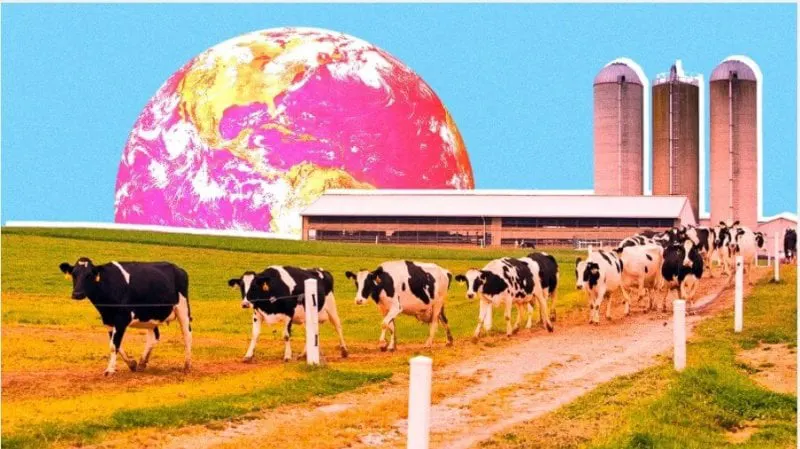Viewpoint: How transparent are global meat and dairy companies in disclosing their impacts on climate change?
Viewpoint: How transparent are global meat and dairy companies in disclosing their impacts on climate change?


Last fall, the National Cattlemen’s Beef Association (NCBA) took out a full-page ad in The New York Times declaring that the U.S. “produces the most sustainable beef in the world” and that “cattle play an important role in protecting and enhancing our ecosystems.”
Why was the nation’s beef trade group spending some of its $66.5 million budget to promote this climate-forward message? Because the conversation about the climate crisis has been heating up (pun intended) and policy makers increasingly connect food production, particularly meat and dairy, with the crisis—and rightfully so.
Last year, a study published in Climatic Change set out to explore the climate culpability of the top 35 animal agriculture companies globally in terms of climate impacts, building on an earlier report from the Institute for Agriculture and Trade Policy (IATP) and GRAIN.
This new study investigates how the world’s biggest meat and dairy companies are being transparent (or not) about this responsibility and what role these companies play in a political and cultural conversation that is leading to obstruction on climate action.
…
“If you look at how many of these 35 meat and dairy companies analyzed in that report even calculate the share of their own emissions, it’s less than half. This is a big indicator that they don’t view themselves as having much responsibility and that society hasn’t held them accountable for these problems,” [said study coauthor Jennifer Jacquet.]
This is an excerpt. Read the original post here.

 | Videos | More... |

Video: Nuclear energy will destroy us? Global warming is an existential threat? Chemicals are massacring bees? Donate to the Green Industrial Complex!
 | Bees & Pollinators | More... |

GLP podcast: Science journalism is a mess. Here’s how to fix it

Mosquito massacre: Can we safely tackle malaria with a CRISPR gene drive?

Are we facing an ‘Insect Apocalypse’ caused by ‘intensive, industrial’ farming and agricultural chemicals? The media say yes; Science says ‘no’
 | Infographics | More... |

Infographic: Global regulatory and health research agencies on whether glyphosate causes cancer
 | GMO FAQs | More... |

Why is there controversy over GMO foods but not GMO drugs?

How are GMOs labeled around the world?

How does genetic engineering differ from conventional breeding?
 | GLP Profiles | More... |

Alex Jones: Right-wing conspiracy theorist stokes fear of GMOs, pesticides to sell ‘health supplements’




 Viewpoint — Fact checking MAHA mythmakers: How wellness influencers and RFK, Jr. undermine American science and health
Viewpoint — Fact checking MAHA mythmakers: How wellness influencers and RFK, Jr. undermine American science and health Viewpoint: Video — Big Solar is gobbling up productive agricultural land and hurting farmers yet providing little energy or sustainabilty gains
Viewpoint: Video — Big Solar is gobbling up productive agricultural land and hurting farmers yet providing little energy or sustainabilty gains Fighting deforestation with CO2: Biotechnology breakthrough creates sustainable palm oil alternative for cosmetics
Fighting deforestation with CO2: Biotechnology breakthrough creates sustainable palm oil alternative for cosmetics Trust issues: What happens when therapists use ChatGPT?
Trust issues: What happens when therapists use ChatGPT? California, Washington, Oregon forge immunization alliance to safeguard vaccine access against federal undermining
California, Washington, Oregon forge immunization alliance to safeguard vaccine access against federal undermining 30-year-old tomato line shows genetic resistance to devastating virus
30-year-old tomato line shows genetic resistance to devastating virus The free-range chicken dilemma: Better for birds, but with substantial costs
The free-range chicken dilemma: Better for birds, but with substantial costs ‘You have to treat the brain first’: Rethinking chronic pain with Sanjay Gupta
‘You have to treat the brain first’: Rethinking chronic pain with Sanjay Gupta
